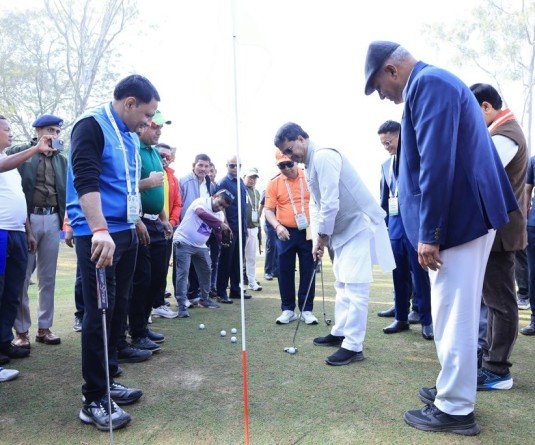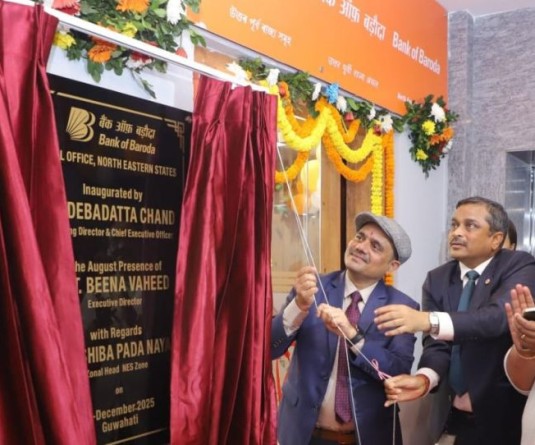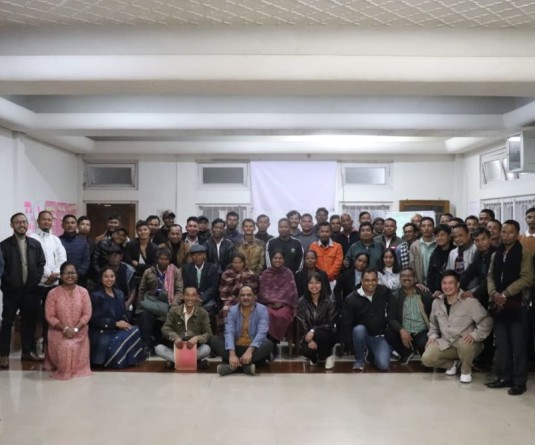
Dimapur, January 31 (MExN): The Asia Indigenous Peoples Pact (AIPP) has organized a panel discussion on "Law, Politics and Rights of Indigenous Peoples: Resource Grab, Militarization and the Future of Democracy" on February 5, 10:00 am to 2:00 pm at India Islamic Cultural Centre, Conference Hall I 87 - 88, Lodhi Estate, New Delhi. The co-hosts for the discussion are Jharkhandi Organization for Human Rights (JOHAR) and Naga Peoples Movement for Human Rights (NPMHR).
The discussion will be accompanied by a report 'India and the Rights of Indigenous Peoples: Constitutional, Legislative and release titled Administrative Provisions concerning Indigenous and Tribal Peoples in India and their relation to International law on Indigenous peoples’, followed by presentations by the writers, stated Tungshang Ningreichon on behalf of the organizer in a press note.
It stated that the programme will consist of a short introduction by Joan Carling, Chairperson of the Asian Indigenous Peoples Pact, a regional organization of Indigenous Peoples organizations based in Chiang Mai. This will be followed by a brief summary of key findings related to the following key topics: Militarisation and Armed Forces (Special Power) Act (AFSPA), and Panchayats Extension to Scheduled Area Act (PESA)/Forest Rights Act (FRA) and community control over natural resources. The presentation will be followed by a panel discussion of eminent people associated with indigenous/adivasi/tribals issues in India, along with the authors.
The Objectives of the panel discussion is to research findings and increase visibility of these issues and to critically examine key research findings and recommendations that need to be taken forward at the national level and addressed by the policy makers and executive agencies at national and state levels, it stated.
It also stated that the report is the first of its kind in its attempt to examine India’s highly developed legal and policy framework for its ‘Scheduled Tribes’, as it relates to international standards promoting equal treatment and opportunities for indigenous and tribal peoples, in particular ILO Convention No. 169 on Indigenous and Tribal Peoples and the UN Declaration on the Rights of Indigenous Peoples.
In addition to covering general thematic areas of concern, such as right to land and resources, participation in decision-making and recognition of customary laws, the report also includes two case studies on Nagaland and Jharkhand, which shed light on the ground realities of indigenous and tribal communities.
The discussion will be accompanied by a report 'India and the Rights of Indigenous Peoples: Constitutional, Legislative and release titled Administrative Provisions concerning Indigenous and Tribal Peoples in India and their relation to International law on Indigenous peoples’, followed by presentations by the writers, stated Tungshang Ningreichon on behalf of the organizer in a press note.
It stated that the programme will consist of a short introduction by Joan Carling, Chairperson of the Asian Indigenous Peoples Pact, a regional organization of Indigenous Peoples organizations based in Chiang Mai. This will be followed by a brief summary of key findings related to the following key topics: Militarisation and Armed Forces (Special Power) Act (AFSPA), and Panchayats Extension to Scheduled Area Act (PESA)/Forest Rights Act (FRA) and community control over natural resources. The presentation will be followed by a panel discussion of eminent people associated with indigenous/adivasi/tribals issues in India, along with the authors.
The Objectives of the panel discussion is to research findings and increase visibility of these issues and to critically examine key research findings and recommendations that need to be taken forward at the national level and addressed by the policy makers and executive agencies at national and state levels, it stated.
It also stated that the report is the first of its kind in its attempt to examine India’s highly developed legal and policy framework for its ‘Scheduled Tribes’, as it relates to international standards promoting equal treatment and opportunities for indigenous and tribal peoples, in particular ILO Convention No. 169 on Indigenous and Tribal Peoples and the UN Declaration on the Rights of Indigenous Peoples.
In addition to covering general thematic areas of concern, such as right to land and resources, participation in decision-making and recognition of customary laws, the report also includes two case studies on Nagaland and Jharkhand, which shed light on the ground realities of indigenous and tribal communities.


.jpg)



